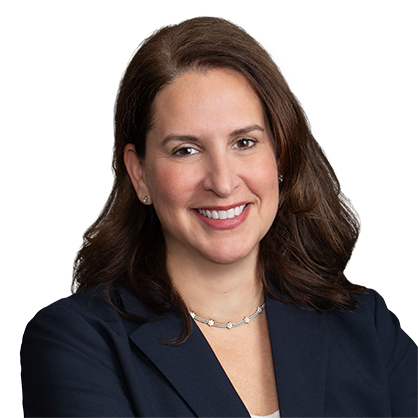Insights
Thought Leadership
New York Rings in the New Year With New Employment Laws
As we start 2024, New York continues to introduce new laws that require employers' attention. Below, we highlight the new laws for 2024 and recap other developments from 2023.
Minimum Wage/Exemptions
Effective January 1, the minimum wage increased to $16 per hour in New York City, Long Island, and Westchester County and to $15 per hour in the rest of the state. The minimum wage will increase by $0.50 on January 1, 2025, and again on January 1, 2026. The hourly wage rate and maximum tip credit for service employees also increased January 1. For tipped service credit employees working in New York City, Long Island and Westchester County, the minimum hourly wage increased to $13.35 ($12.50 in the rest of the state), and the maximum tip credit increased to $2.65 ($2.50 in the rest of the state). For tipped food service workers working in New York City, Long Island and Westchester County, the minimum hourly wage increased to $10.65 ($10 in the rest of the state), and the maximum tip credit increased to $5.35 ($5 in the rest of the state). Also effective January 1, the minimum salary for executive and administrative employees to be exempt from overtime increased to $1,200 per week in New York City, Long Island and Westchester County and to $1,124.20 per week in the rest of the state. Employees must still meet the duties to qualify for exempt status.
Paid Family Leave
Effective January 1, the employee contribution rate decreased to 0.373 percent of gross wages per pay period, and the maximum annual contribution decreased to $333.25 ($66.18 less than 2023). Additional information can be found here. Amendments to Definition of 'Clerical and Other Worker' in NY Labor Law In September 2023, Gov. Kathy Hochul signed bill S5572/A6796, which amends the New York Labor Law's definition of "clerical and other worker." Effective March 13, the minimum weekly earnings that a bona fide executive, administrative or professional employee must receive to be exempt under Article 6 of the New York Labor Law will increase from $900 to $1,300 per week. Article 6 imposes certain requirements on employers relating to employees in the clerical and other category (i.e., requiring employers to obtain advance consent to pay wages by direct deposit, requiring nonexempt employees to be paid at least semimonthly and requiring criminal penalties for failure to pay benefits or other supplemental wages). Paid Leave for Prenatal Care On January 4, Hochul announced a proposed plan to expand New York's Paid Family Leave law to include 40 hours of paid leave to attend prenatal medical appointments. If this is signed into law, New York would become the first state to provide paid family leave coverage for prenatal care.
End of Paid Vaccination Leave
As of January 1, New York employers are no longer required to provide up to four hours of paid leave for employees to receive a COVID-19 vaccine.
Extended Statute of Limitations Under NY Human Rights Law
New York Executive Law § 297 has been amended to extend the statute of limitations for filing any complaints of unlawful discrimination or harassment with the State Division of Human Rights from one year to three years for claims arising on or after February 15. The three-year statute of limitations aligns with the current statute of limitations that applied only to filing of complaints of workplace sexual harassment.
Social Media Disclosures
Effective March 12, New York employers will not be permitted to request, require, or coerce employees or job applicants to:
- disclose any username, password or other authentication information for accessing a social media account;
- access the individual's social media account in the presence of the employer; or
- reproduce in any manner photographs, video or other information contained within a social media account.
Employers may still access publicly available information about employees and job applicants. Additional information can be found here.
NY Clean Slate Act
Employers who rely on criminal background checks in connection with hiring applicants should be aware of this new law relating to New York criminal records. Pursuant to S7551A, which will become effective November 16, the conviction records of individuals convicted of certain state crimes will be automatically sealed from public access after the individuals have satisfied their sentence and remain law-abiding citizens for a specified period. Under the law, certain felony convictions will be sealed eight years after an individual leaves prison, and certain misdemeanor convictions will be sealed three years after an individual leaves prison or from the imposition of a sentence, provided the individual maintains a clean record and is no longer on parole. Employers must continue to comply with existing New York state and New York City laws regarding when criminal conviction inquiries may be made and factors to consider if an employer relies on this information.
Freelance Isn't Free Act
The New York State Freelance Isn't Free Act becomes effective on May 20, providing certain protections to freelance workers who are paid at least $800 for their work, including for multiple projects over a 120-day period. Under the act, a business must provide a freelance worker with a written contract and must pay the worker within 30 days unless another payment period is agreed to. Businesses may not retaliate against freelance workers for exercising their rights under the act. The act provides for a private right of action and the recovery of double damages and attorneys' fees. Notably, a New York City law with the same name became effective in 2017 and contains certain other requirements.
Recent Employment Law Developments in 2023
Nondisclosure Provisions in Settlement Agreements
New York General Obligations Law § 5-336 has been amended to impose additional restrictions on employment-related settlement agreements. The law already prohibited employers from including nondisclosure provisions in settlement agreements based on discrimination claims unless the provision was the complainant's preference as stated in a separate agreement signed by all parties. As of November 17, 2023, the law was amended to apply to settlement of harassment and retaliation claims as well. Individuals must be provided up to 21 days to consider the confidentiality provision and at least seven days to revoke the agreement after execution. The 21-day consideration period is waivable, as complainants may choose to execute a preference agreement before the expiration of the 21-day period. Moreover, the law now voids releases of discrimination, harassment and retaliation claims if the claimant is required to pay liquidated damages or to forfeit all or part of the consideration for violating a confidentiality provision, or if the agreement contains or requires a statement by the complainant that the complainant was not in fact subject to unlawful discrimination, harassment or retaliation. Notably, if there is an existing lawsuit pending in New York state court and it is the plaintiff's preference to have a nondisclosure provision in the settlement agreement, then, pursuant to New York Civil Practice Law & Rules § 5003-B, the plaintiff must be given a full 21-day period to review the nondisclosure provision. That 21-day review period is not waivable. After the 21-day period, the preference agreement can then be memorialized in an agreement and signed by all parties. The plaintiff must be given at least seven days to revoke the agreement.
New York Noncompete Bill Vetoed
On December 22, 2023, Hochul vetoed a bill (S3100) passed by the New York State Legislature that would have banned noncompete clauses in almost all employment agreements. In a memo, Hochul stated that she has "long supported limits on noncompete agreements for middle-class and low-wage workers, protecting them from unfair practices that would limit their ability to earn a living." State Sen. Sean Ryan announced that he will introduce a new noncompete bill.
Limitations on Assignment of Inventions
Effective September 15, 2023, New York Labor Law § 203-f was amended to render unenforceable clauses in employment agreements requiring employees to assign their inventions to their employer if the employee created the invention on their own time and without use of the employer's equipment, supplies, facilities or trade secrets. However, there is an exemption for inventions that relate to the employer's business or actual or demonstrably anticipated research or development of the employer or result from work that the employee performs for the employer.
The Bottom Line
As in recent years, New York has remained active in modifying its employment laws, and that trend does not seem to be slowing. Employers are encouraged to review their handbooks, policies and agreements and to consult employment counsel to ensure that they comply with the evolving law.





